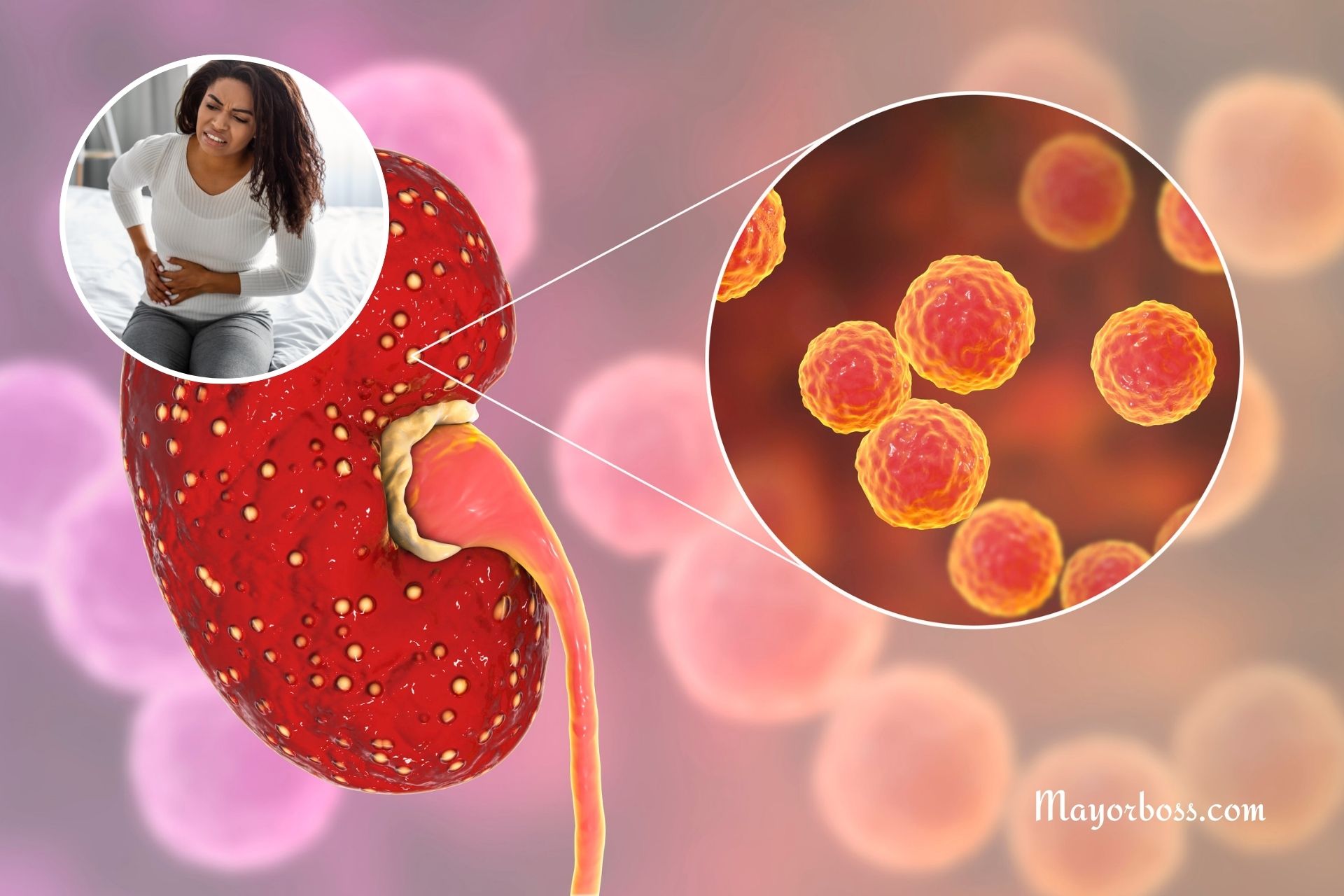Kidney Infection Symptoms: 10 Signs You Should See a Doctor
A kidney infection is a serious illness. It is also called pyelonephritis. It usually starts as a urinary tract infection (UTI) and then moves to the kidneys. This article explains ten common signs that may show you have a kidney infection.

1. High Fever
A high fever is a common sign of a kidney infection. This means your body temperature is above 101°F (38.3°C). The fever may start quickly, and you might also have chills. A high fever shows that your body is trying hard to fight the infection.
2. Pain in the Back or Side
Pain in the lower back or side is another significant symptom of a kidney infection. This pain usually happens on the side where your kidneys are located. The pain can be dull or sharp. It stays for a long time and tells you that the infection may have reached the kidney.
3. Frequent Urination
If you feel like you need to urinate very often, it could be a signal of a kidney infection. You might go to the bathroom more times than normal, even if only a little urine comes out. This sign often starts when you have a UTI and can get worse if the infection moves to your kidney.
4. Burning Sensation During Urination
Many individuals with a kidney infection feel a burning pain when they pee. This burning happens because the infection makes the tissues in your urinary tract inflamed. If this pain continues or gets worse, it could mean the infection has moved upward from the bladder to the kidney.
5. Cloudy or Foul-Smelling Urine
Your urine may change in color or smell if you have a kidney infection. It might look cloudy, dark, or even have a bit of blood. Urine that smells bad is also a warning sign. These changes occur because your body is fighting the bacteria and shedding cells and proteins into the urine.
6. Nausea and Vomiting
Feeling sick to your stomach or even vomiting can be an indication of a kidney infection. When your body is busy fighting an infection, you might feel weak and lose your appetite. Vomiting can make you lose fluids, so it is important to drink water and seek help if these symptoms occur.
7. Fatigue and Weakness
If you feel very tired or weak, it might be because your body is using a lot of energy to fight the infection. This constant tiredness can be a sign of a kidney infection. It is important to rest and see a doctor to help your body recover.
8. Pain When Urinating
Some people feel sharp pain when they urinate. This pain is not just a burning feeling; it can be more severe. The pain may come from the bacteria moving up the urinary tract.
9. Abdominal Pain
Pain in the lower part of your belly may also occur with a kidney infection. This pain can happen along with other symptoms like fever and changes in urination. Abdominal pain, especially when combined with other signs, should make you see a doctor as soon as possible.
10. Confusion or Mental Changes
In some cases, especially in older people, a kidney infection can cause confusion or changes in how a person thinks. This sign is not common in younger people.
If you notice one or more of these signs, it is important to contact your healthcare provider right away. Doctors usually use antibiotics to fight the infection. They may also run tests like urine tests, blood tests, or imaging studies to see the state of your kidneys. Do not wait or try to treat a kidney infection at home. Early care can stop the infection from spreading and causing more serious problems.
How Kidney Infections Are Treated
Most kidney infections are treated with antibiotics. The length of the treatment depends on how severe the infection is. Sometimes, people need to stay in the hospital if the infection is very bad or if it leads to sepsis. Pain medicine might be given to help ease discomfort. It is important to follow your doctor’s instructions closely during treatment.
Preventing Kidney Infections
There are some steps you can take to help prevent kidney infections:
- Stay Hydrated: Drink plenty of water. This helps to flush out bacteria from your urinary system.
- Urinate Regularly: Do not hold in your urine for long periods. Going to the bathroom often helps clear bacteria.
- Practice Good Hygiene: Keep your genital area clean. This can help stop bacteria from entering the urinary tract.
- Follow Medical Advice: If you get UTIs often, talk to your doctor. They may give you steps to prevent the infection from moving to your kidney.
